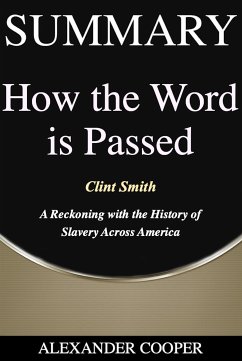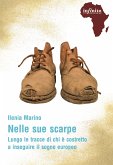Summary of How the Word Is Passed Clint Smith reported an expedition with Leon A. Waters, an activist against white supremacy and novelist, who has committed his life to the cause. He has authored a book about New Orleans' slavery past. The book investigates the river's significance in the slave trade as well as the city's African-American population's history. Waters was introduced to the author by a group of young Black activists in NOLA, who were members of the Take 'Em Down NOLA' movement. Waters has served as a mentor to several members of the organization, according to him, and they credit him with being a key part of their political education. New Orleans recently demolished four statues and monuments that it judged paid homage to white supremacy's past. The city desecrated Confederate monuments, slaveholder monuments, and anti-slavery monuments. However, there are still at least a hundred streets, statues, parks, and schools named after Confederate leaders and slave-owners. The dismantling of these monuments was part of a larger campaign in New Orleans and across the United States to confront the city's legacy of slavery and racial injustice. In recent years, monuments like this have started to go up all across the city, documenting a specific neighborhood's connection to slavery. The largest slave market in antebellum America was originally located in New Orleans. Slavery is memorialized in New Orleans. From the levees to the streets to the architecture, the echoes of servitude can be found throughout the city. Clint Smith writes that the city is at a turning point when more people are willing to confront the legacy of slavery. However, other cities, like New Orleans, refuse to acknowledge the legacy. Clint Smith states that the more consciously some places have worked to communicate the truth, the more adamantly others have resisted. In How the Word Is Passed, the author travels to eight locations in the United States and one abroad to learn about the history of slavery. Plantations, prisons, cemeteries, museums, memorials, residences, historical places, and cities are all visited by the author. Clint Smith writes that "each chapter is a portrait of a location as well as the people who live there." Here is a Preview of What You Will Get: ¿ A Full Book Summary ¿ An Analysis ¿ Fun quizzes ¿ Quiz Answers ¿ Etc Get a copy of this summary and learn about the book.
Dieser Download kann aus rechtlichen Gründen nur mit Rechnungsadresse in A, B, BG, CY, CZ, D, DK, EW, E, FIN, F, GR, HR, H, IRL, I, LT, L, LR, M, NL, PL, P, R, S, SLO, SK ausgeliefert werden.









